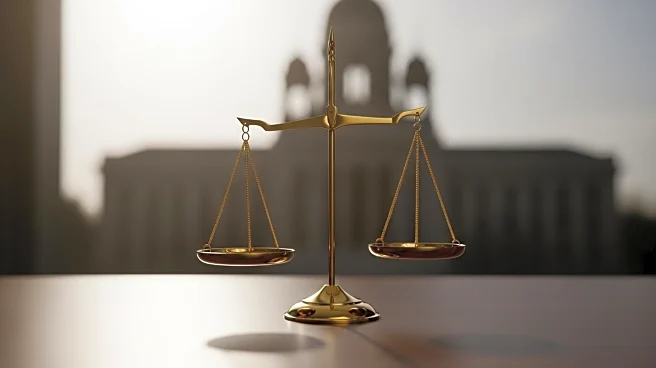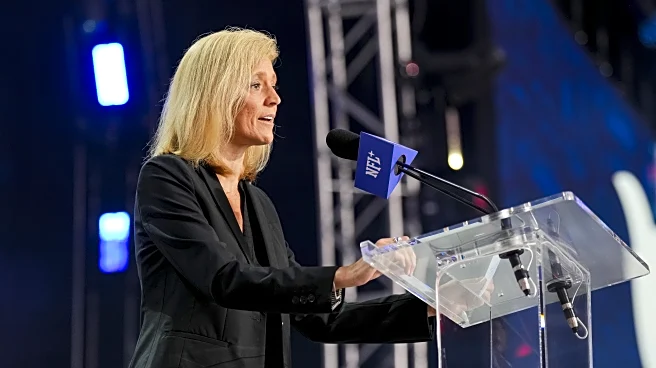What's Happening?
Nicolas Sarkozy, former President of France, has been sentenced to five years in prison for criminal conspiracy related to attempts to raise campaign funds from Libya. The Paris court found him guilty of allowing aides to seek financial support from the Libyan regime for his 2007 presidential campaign. Sarkozy was acquitted of other charges, including corruption and illegal campaign financing. The sentence is enforceable immediately, and Sarkozy plans to appeal the ruling, which he described as scandalous.
Why It's Important?
Sarkozy's conviction is a landmark case in French politics, highlighting the judiciary's role in addressing political corruption. The ruling may influence public perception of political integrity and the accountability of leaders. Sarkozy's sentence could impact his political influence and the dynamics within French political parties. The case underscores the importance of transparency in campaign financing and may lead to calls for reform in political funding regulations.
What's Next?
Sarkozy's appeal could lead to further legal proceedings and public debate over the fairness of the judicial system. The immediate enforcement of the sentence means Sarkozy will soon serve time, marking a significant moment in French political history. Political reactions are expected, with some figures supporting Sarkozy and others criticizing the ruling. The case may influence future political campaigns and the handling of campaign financing in France.
Beyond the Headlines
The case raises ethical questions about the influence of foreign entities in domestic elections and the integrity of political leaders. Sarkozy's conviction may lead to discussions on the need for stricter regulations and oversight in campaign financing. The involvement of high-profile figures and the international dimension of the case highlight the complexities of political corruption. The ruling may also affect Sarkozy's legacy and his role in shaping French politics.










